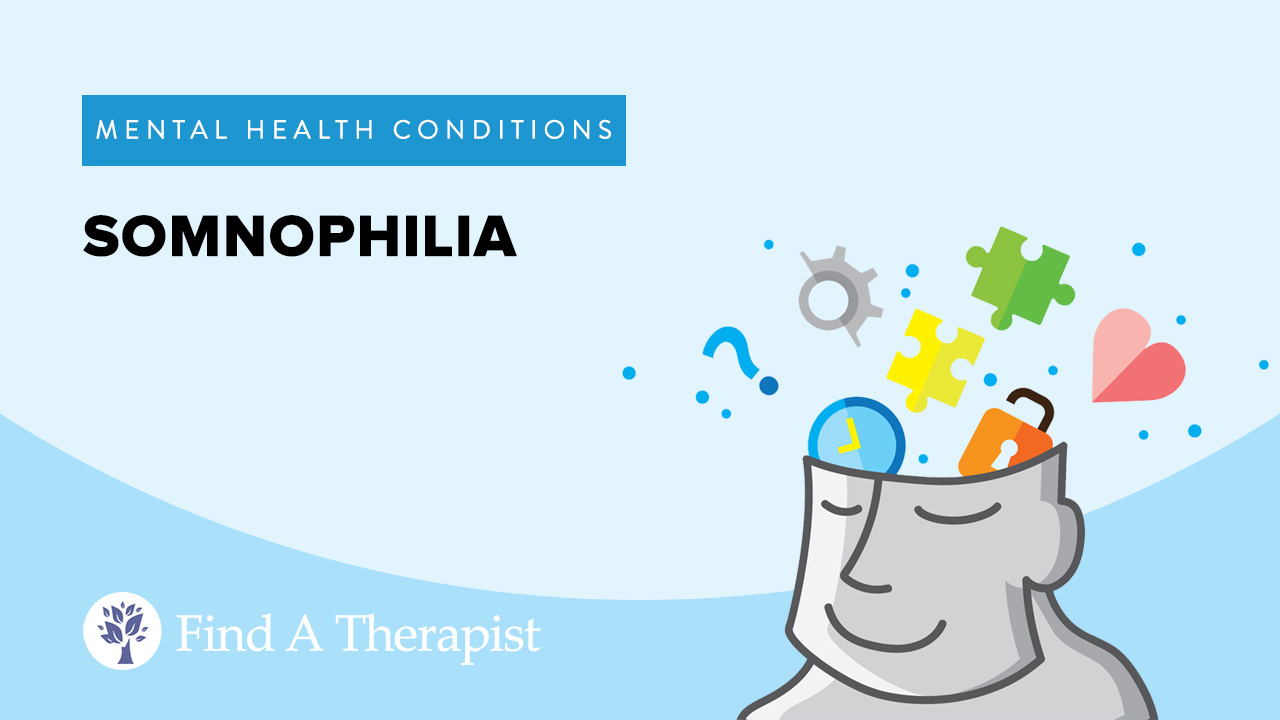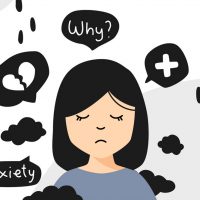What Is Somnophilia?
Published on May 8th, 2019
Updated on January 8th, 2024

Somnophilia is a paraphilia, which is a sexual interest that is outside of the norm. The norm refers to a typical sexual activity between two consenting adults. These sexual interests may involve risky, violating, and dangerous sexual behaviors.
Someone with somnophilia suffers from a desire for sexual contact with someone who is unconscious. This condition is uncommon but can affect people in a way that impacts their quality of life.
A person with somnophilia does not always act on their sexual urges. They do not have to act on problematic thoughts and impulses to have the condition. They may struggle with fantasies or thoughts about sex with an unconscious person.
Sponsored by

Choose a therapist to work with and start healing with 20% off from BetterHelp.
Click HereA person with the condition may or may not act on the sexual desire. Carrying out somnophilic urges with an unconsenting, unconscious, or unaware person is assault.
Affected people who act on their sexual impulses may do the following:
- Sexual acts on unconscious people
- Rape people who are sleeping or unconscious
- Use or date rape drugs like GHB and Rohypnol on unsuspecting victims
- Sexual acts on people who are sleeping
- Targeting people in comas
Somnophilia may involve rendering a victim unconscious. Once unconscious, the affected person performs sexual acts to their body. The victim may not be not conscious or aware of the acts being performed. Acts involve rape and other means of sexual violation. Victims may not remember what happened or who violated them. This is particularly prevalent for victims of date rape drugs.
Symptoms of Somnophilia
People with somnophilia understand that sex with unconscious and sleeping people is wrong. Many affected people can make the moral decision to resist their urges. These people may seek treatment and find ways to resist their urges. People who act on their urges with unconsenting victims are sexual predators.
People with somnophilia may suffer from several symptoms, whether or not they act on them. The possible symptoms of somnophilia include:
- Recurring sexual thoughts and fantasies about people who are unconscious or sleeping
- Recurring urges to perform sexual acts on unconscious or sleeping people
- Difficulty resisting thoughts and impulses about having sex with sleeping and unconscious people
- Experiencing distress in reaction to thoughts, fantasies, urges, or impulses
- Having thoughts and impulses impact functioning (work, school, socializing, etc.)
- Experiencing symptoms for six months or longer
An offender with somnophilia becomes aroused in the following situations:
- Fondling, caressing, or performing other sexual acts on someone who is asleep
- Performing sexual acts on people who are in a coma or otherwise incapacitated
- Using drugs to render a victim unconscious, then performing sexual acts on them
- Having sex with an unconscious or sleeping person
Offenders know that these acts are wrong. They fail to resist their sexual urges and impulses.
Causes and Risk Factors of Somnophilia
Somnophilia is not as common as other paraphilias. Because of this, not much is known about what causes the disorder. It is speculated that causes have to do with feeling a sense of power over the victim.
Causes may also be linked to a history of sexual abuse. This is especially the case if the abuse occurred at night or while the victim was sleeping as a child.
A bit more is known about the causes of a paraphilia. Causes of a paraphilia can sometimes be applied to what causes somnophilia. Causes are mostly based on research on convicted offenders. Since the evidence is based on offenders, it may not reflect all cases of somnophilia. Evidence is lacking from non-offenders with the condition.
Paraphilias may be co-morbid with other mental health disorders. This means they exist with other mental health disorders. Such mental health disorders include:
There are several correlations between different cases of paraphilia. These correlations support the following as possible risk factors:
- Addiction
- Depression
- Bipolar disorder
- Antisocial personality disorder
- Other paraphilic disorders
Treatment Options for Somnophilia
Somnophilia is treatable. People who are concerned with their thoughts and impulses should seek therapy.
Early intervention is the first defense against acting on sexual impulses. Treatment can help with minimizing sexual fantasies. It also helps with creating appropriate and safe sexual interests. These interests produce less distress.
Treatment options include behavioral therapy. Behavioral therapy helps to target and minimize impulsive behavior. It also teaches skills to resist impulses and learn healthier behavior habits.
Cognitive-behavioral therapy (CBT) can also be helpful. CBT helps to restructure thought patterns. This helps promote healthy thinking and minimize impulsivity.
Programs that treat sex addiction can aid in the treatment. Treatment may involve inpatient therapeutic programs. This depends on the affected person’s condition.
12-step programs may help those in recovery. A 12-step program may supplement treatment and be used to maintain healthy habits. Sexaholics Anonymous (SA) is a type of 12-step program that can help people who suffer from compulsive sex seeking and paraphilias. According to research, a 12-step program like SA can help by:
- Reducing feelings of helplessness or powerlessness
- Teaching self-control
- Reinforcing sexual suppression
- Reducing behaviors that avoid seeking help
With early treatment, acting on sexual impulses can be prevented. Treatment can also prevent offenders from re-offending. People with somnophilia should stay away from all environments that trigger thoughts and impulses.
Sponsored by

Find an affordable therapist online with 20% off from BetterHelp.
Click Here






Leave A Reply